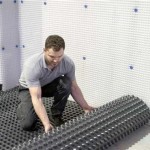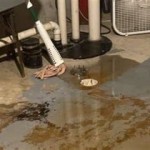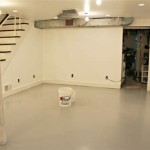White Fluffy Mold in Basement: Essential Aspects to Know
White fluffy mold in a basement is a common problem that can pose health risks and damage property. Understanding its causes, prevention, and remediation is crucial to maintain a healthy and safe living environment.
Causes of White Fluffy Mold
White fluffy mold, typically identified as Aspergillus or Cladosporium, thrives in moist and warm environments. Common causes include:
*- Basement flooding
- High humidity levels
- Leaking pipes or appliances
- Poor ventilation
Health Risks Associated with White Fluffy Mold
Exposure to white fluffy mold can trigger allergic reactions, respiratory problems, and even infections. Symptoms may include:
*- Sneezing and runny nose
- Itchy and watery eyes
- Coughing and difficulty breathing
- Skin irritation
Property Damage Caused by White Fluffy Mold
Uncontrolled growth of white fluffy mold can lead to structural damage, especially in basements with organic materials like drywall, wood, and carpet. Prolonged exposure can cause:
*- Staining and discoloration of surfaces
- Structural weakening and rot
- Property devaluation
Prevention and Remediation of White Fluffy Mold
Preventing and remediating white fluffy mold in basements requires a comprehensive approach:
Preventative Measures:
*- Control humidity levels with a dehumidifier
- Repair leaks promptly
- Ensure proper ventilation with fans or vents
- Clean and disinfect damp areas regularly
Remediation Measures:
*- Identify and eliminate the source of moisture
- Clean affected surfaces with mold-killing solutions
- Remove severely damaged materials and discard
- Thoroughly dry the basement using dehumidifiers and fans
Professional Help for White Fluffy Mold
In severe cases, professional mold remediation services may be necessary to address extensive mold growth, hidden moisture issues, or health concerns. A professional team can:
*- Identify the mold species and extent of contamination
- Develop and implement a customized remediation plan
- Ensure thorough cleaning and disinfection
- Monitor the environment to prevent recurrence
Conclusion
White fluffy mold in basements poses health and property risks that should not be ignored. Understanding its causes, prevention techniques, and remediation methods is essential for maintaining a healthy and safe living space. By addressing moisture control, preventing mold growth, and seeking professional help when necessary, homeowners can effectively mitigate the presence of this hazardous fungus in their basements.

How To Get Rid Of And Prevent Mold Growth On Concrete Environix

White Mold Is It Dangerous How To Remove Busters

How To Get Rid Of And Prevent Mold Growth On Concrete Environix

How To Identify That White Stuff On Your Concrete Wall Kryton

Ask The Builder Fluffy Salt Crystals Are Not Mold Seattle Times

White Mold Is It Dangerous How To Remove Busters

White Mold Is It Dangerous How To Remove Busters

How To Get Rid Of And Prevent Mold Growth On Concrete Environix

Efflorescence The White Fluffy Mold On Concrete

Species Identification What Is This White Fluff Growing In My Basement Biology Stack Exchange








